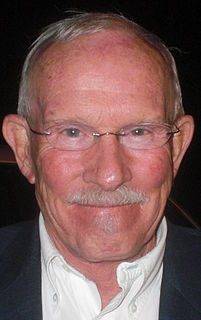A Quote by Plato
Truth is the beginning of every good thing, both in heaven and
on earth; and he who would be blessed and happy should be from
the first a partaker of truth, for then he can be trusted.
Related Quotes
Adorn yourself with truth, try to speak truth in all things; and do not support a lie, no matter who asks you. If you speak the truth and someone gets mad at you, don't be upset, but take comfort in the words of the Lord: Blessed are those who are persecuted for the sake of truth, for theirs is the Kingdom of Heaven (Matt. 5:10).
If we ought not to fear mortal truth, still less should we dread scientific truth. In the first place it can not conflict with ethics? But if science is feared, it is above all because it can give no happiness? Man, then, can not be happy through science but today he can much less be happy without it.
Truth should be the first lesson of the child and the last aspiration of manhood; for it has been well said that the inquiry of truth, which is the love-making of it, the knowledge of truth, which is the presence of it, and the belief of truth, which is the enjoying of it, is the sovereign good of human nature.
Things that are good are good, and if one is responding to that goodness one is in contact with a truth from which one is getting something. The truth is doing us good. The truth of the sunshine, the truth of the rain, the truth of the fresh air, the truth of the wind in the trees, these are truths. And they are always accessible!
I have always thought that Heaven is a place for people who had had a good life, but that is not true. God is merciful and way too good to make it so. The Heaven is just a place for people who could not be really happy while living on Earth. I was once told that people who commit suicide are taken back on Earth to repeat life from the very beginning because if they did not like it once, it did not mean they would not like it the next time. But those who did not fit in on Earth at all, ended up here. Everyone comes to Heaven in their own way.
At the very outset I have to tell you that truth is what it is. You cannot mold it, you cannot change it. It is always the same. It has been the same, it is the same, it will be the same. But to say that we know the truth and that we have the truth is really a self-deception. If you had known the absolute truth there would have been no problems and everybody would have said the same thing. There would be no discussions, no arguments, no fights and wars. But when we don't know the absolute truth then we can find out our own mental conceptions as the truth. But this mind is so limited.
The Bible is a wonderful book. It is the truth about the Truth. It is not the Truth. A sermon taken from the Bible can be a wonderful thing to hear. It is the truth about the truth about the truth. But it is not the truth. There have been many books written about the things contained in the Bible. I have written some myself. They can be quite wonderful to read. They are the truth about the truth about truth about the Truth. But they are NOT the Truth. Only Jesus Christ is the Truth. Sometimes the Truth can be drowned in a multitude of words.
There are two threats to reason, the opinion that one knows the truth about the most important things and the opinion that there is no truth about them. Both of these opinions are fatal to philosophy; the first asserts that the quest for truth is unnecessary, while the second asserts that it is impossible. The Socratic knowledge of ignorance, which I take to be the beginning point of all philosophy, defines the sensible middle ground between two extremes.
In regard to the philosophers, if they be true philosophers, i.e., lovers of truth, they should not be irritated that the earth moves. Rather, if they realize that they have held a false belief, they should thank those have shown them the truth; and if their opinion stands firm that the earth doesn't move, they will have reason to boast than be angered.
All other great men are valued for their lives; He, above all, for His death, around which mercy and truth, righteousness and peace, God and man are reconciled; for the cross is the magnet which sends the electric current through the telegraph between earth and heaven, and makes both Testaments thrill, through the ages of the past and future, with living, harmonious, and saving truth.
I have a hard time with historians because they idolize the truth. The truth is not uplifting; it destroys. I could tell most of the secretaries in the church office building that they are ugly and fat. That would be the truth, but it would hurt and destroy them. Historians should tell only that part of the truth that is inspiring and uplifting.









































